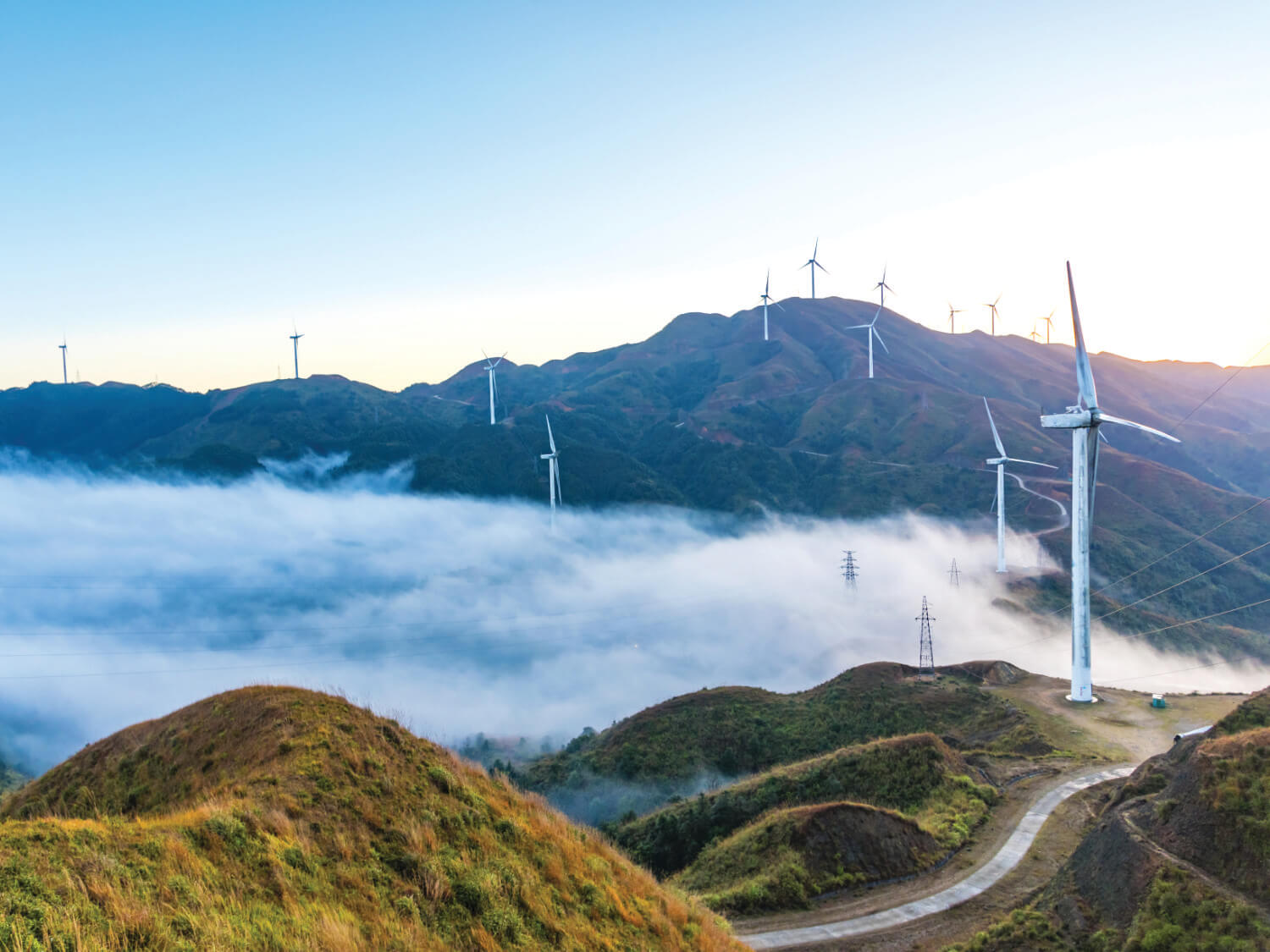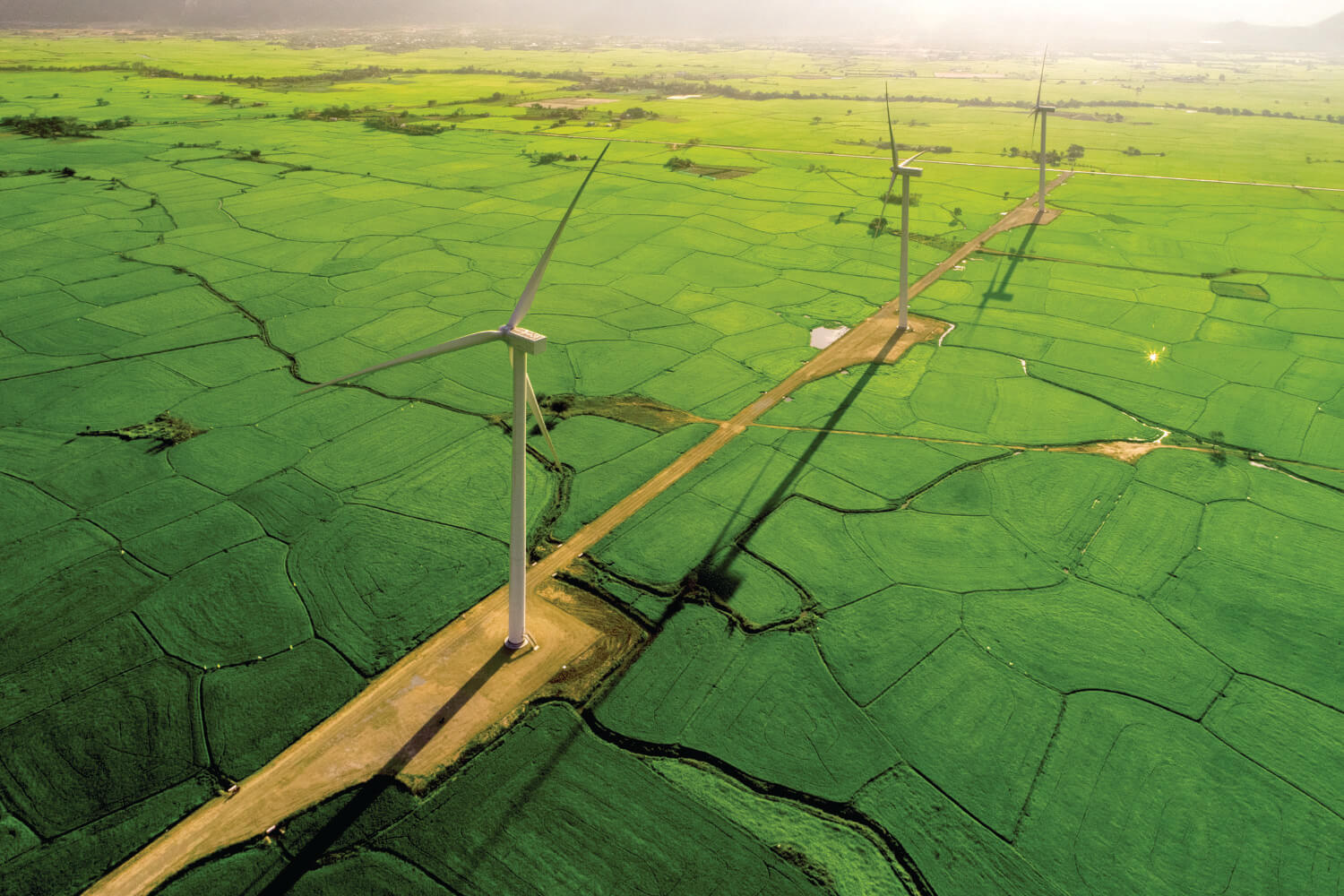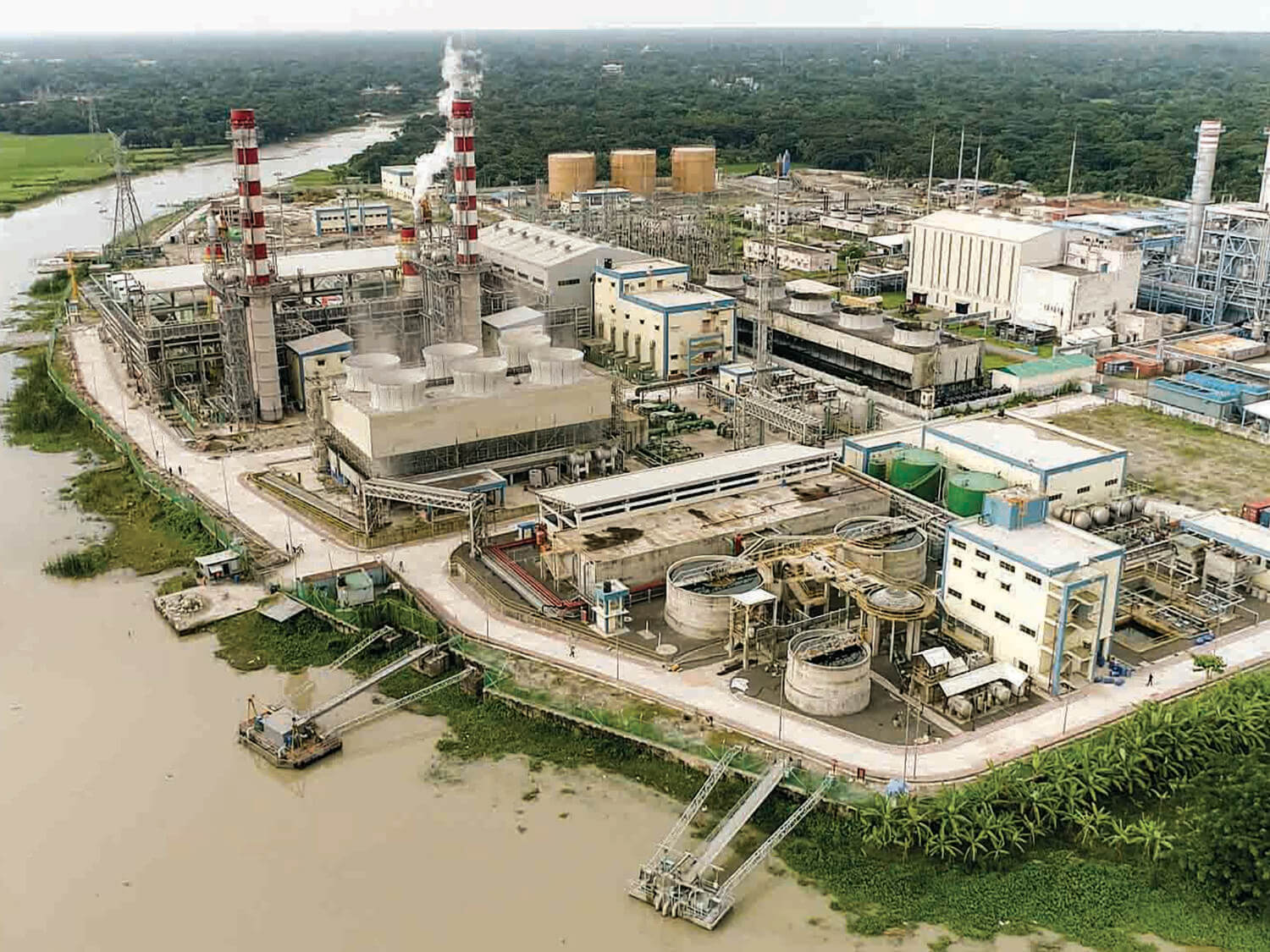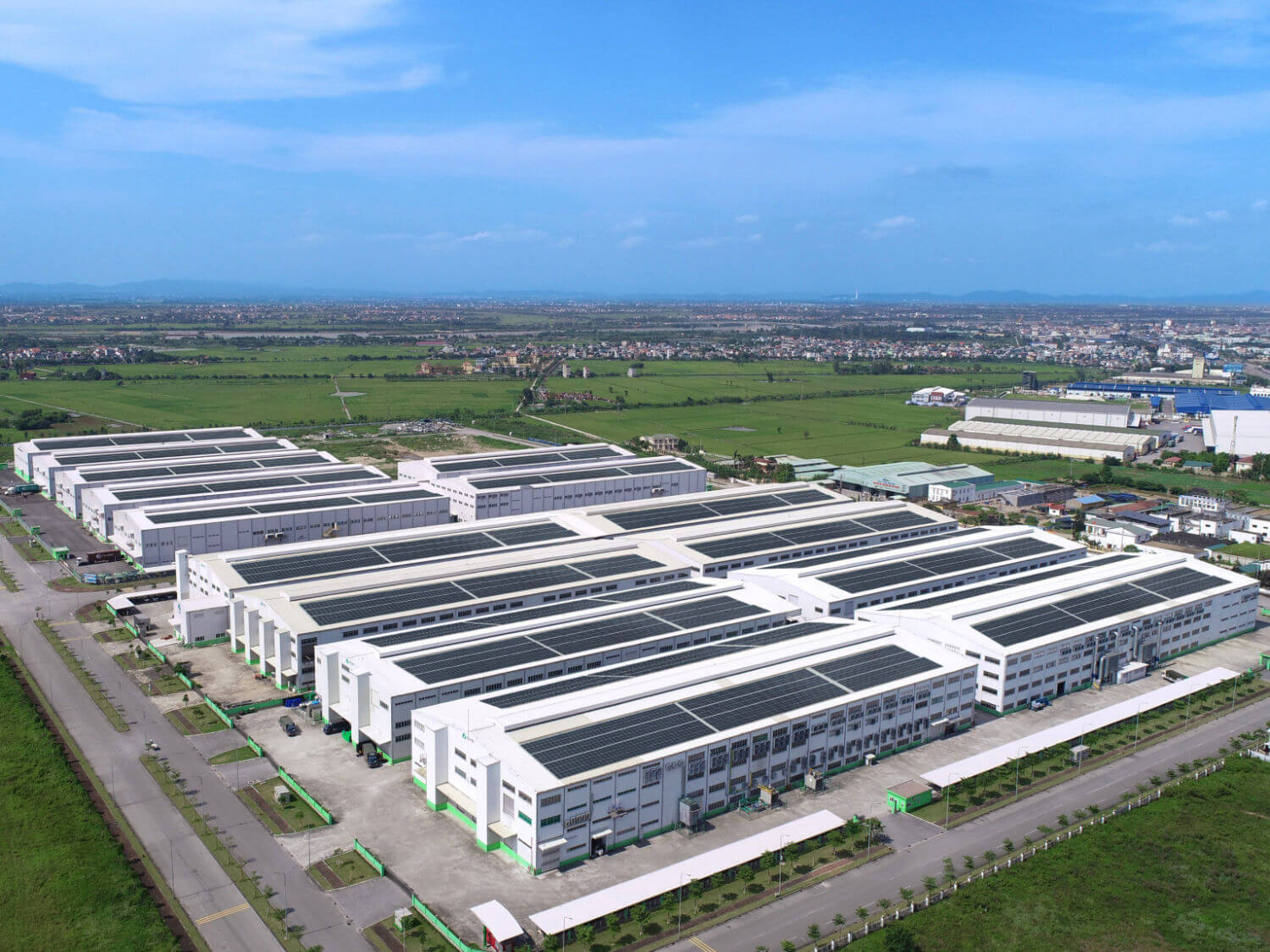Welcome to The Street View. This is where we share with you the how and why of the investment opportunities we are prosecuting. Our long experience as builders and operators means we go beyond the macro headlines so beloved by Wall Street commentary. Our views are from a different, globally diverse ‘street’, as we seek to explore the myriad of opportunities in hard asset investing provided by energy transition and security, the fast digitalising world and industrial change.
Our focus in this issue is on Asia – the largest continent in geography, population and contribution to world growth. It is also the home to a wide range of opportunities for Actis. Whether it be building and developing Lifescience facilities in India, wind and solar in Vietnam, green buildings in Korea or applying new technologies to deliver decarbonisation outcomes across the region, all feature as current Actis projects. We have sharpened our focus on thematic investing rather than pursuing a purely geographic remit, recently committing over US$500 million into Japanese renewables over the next 2-3 years and committing to a similar investment quantum in Vietnam. We are long established in India and recently acquired US$800 million of solar assets in a recent transaction, with several hundred million dollars of further investment planned for logistics and Lifesciences real estate development projects. Our Long Life Infrastructural funds have recently struck interesting deals with the investment in district cooling assets in the Gulf, and acquisition of nearly US$400 million of operational toll roads last year.
In this edition the ‘Big Opportunity in Numbers’, captures some of this exciting opportunity. A US$275 trillion global climate transition spend – more than a third in Asia – to meet Net Zero by 2050. 80GW of new capacity will need to be created this decade, equivalent to the existing power fleet, costing over US$125 billion. A jump in Japan’s renewable power generation target from 22% – 24% to 36% – 38% by 2030. India’s Lifescience industry facility needs real estate as they seek to build on the 60% share of world vaccine production. These are big opportunities. Actis has delivered c. 31GW of generation capacity, developed 13 Green certified buildings to date, with more in the pipeline. We are investing heavily in innovative real estate solutions for logistics, data centres and Lifesciences facilities across Asia. Truly these are Big Numbers.
Asia has the financial depth to finance much of the development it needs through onshore savings. Currency volatility has been declining ever since the 1997-98 crisis, driven by a desire to reduce dependence on volatile short term portfolio flows. Whilst there have been inflationary risks in recent times, these are generally muted when compared to the rest of the world given Asia’s productivity advantages and relatively flexible economies. In general, we see helpful regulatory and governmental frameworks in the region.
On the flip side, Asia remains home to many of the largest emitters of carbon in the world and both climate and political risks have clearly risen in recent times. Several locations have high domestic debt burdens and substantial fiscal deficits, which limit new investment growth. The region is particularly vulnerable to energy price spikes, as most countries are substantial net importers of energy.
This edition dives deep into the opportunity set. Simon Ogus, CEO of DSG Asia based in Hong Kong, draws on his 30 year-plus experience analysing Asia’s economies. He concludes that productive investment, including material flows of foreign direct investment, is an important basis for longer term growth. Furthermore, he notes that the much discussed diversification of supply chains away from China will be a multi-year process benefitting the rest of the region.
Mikael Karlsson and Shami Nissan dive into the challenges of climate change in Asia and the widening range of solutions and investment opportunities for this issue – some US$90 trillion of capital spend alone is required for APAC between 2021 and 2050 to meet Net Zero. Much of this will be funded by private finance given that fiscal priorities lie elsewhere, but accommodating and supportive regulatory frameworks are vital.
Yukari Niwa Yamashita, Managing Director of Japan’s Institute of Energy Economics, makes a welcome guest contribution outlining the technological solutions for addressing renewables investment in Asia. She predicts increased use of ammonia as an additive to reduce emissions from coal- fired and LNG generation plants, alongside development of hydrogen power and – in Japan’s case – a restart of nuclear power. This is a must-read article reminding us of the role of technological development in delivering decarbonisation. The same theme is echoed by our own Marina Johnson and Liam Smith, who track technology solutions for tackling climate change and how we are addressing sustainability in our portfolios.
As previously mentioned, Actis has entered new geographies pursuing our core investment themes. Rahul Agrawal and Vinh-Thang Hoang in Singapore track energy transition in Vietnam and profile our plans to meet the opportunities and challenges in the country. Jun Ohashi and Tareq Sirhan from our newly established Japan office, look at the path of energy transition and an opportunity set in what is the fifth largest energy market in the world. Both articles acknowledge the importance of local factors in investment, alongside the benefits of deploying our deep long-term knowledge as builders and operators.
The same theme – bringing operational skills to bear in solving for changing needs in infrastructure – underpins Brian Chinappi’s article examining our strategies and opportunities in Asian real estate. He defines the four D’s – demographic shift, digital disruption, deficient and obsolescent stock and demand for yield. We are backing clearly identifiable themes in digitalisation, supply chain transformation and the growing importance of health and wellbeing. This means green buildings and logistics in China and Korea, data centres across the region, bespoke development of Lifesciences facilities in India and a combination of many of these themes in Vietnam. No speculative office blocks here -rather developments with specific purpose and close attention to end user specification.
Ashish Singh from our Mumbai office examines the returns available in non- traditional real estate. Ashish does this through the lens of opportunities available in India’s burgeoning Lifesciences sector. In 2022, as Ashish recounts, we put our capital behind this theme in an initial US$200 million buy-and-build portfolio with our new partners, Rx Propellant. Non-core real estate seems to be less competitive and more attractive risk-return characteristics than some of the more ‘old economy’ sectors.
Actis derives great information and insights from the companies we invest in. Their on the ground experience and close partnerships are inspirational and informational. The Street View is no exception.
In this edition we hear from Sudhir Nunes, CEO of Levanta Renewables, a renewable power platform based in Vietnam. He is interviewed by Rahul Agrawal of our Energy Infrastructure team. Sudhir talks about ambitious expansion plans as Levanta Renewables gears up to a 1.5GW platform and shares his views on sustainability and energy transition.
Also from Vietnam, Duong Pham, Chairman of An Phat Holdings, dialogues with Brian Chinappi who leads our Real Estate practice. An Phat Holdings is partnering with Actis on developing industrial and logistics facilities with a strong emphasis on sustainability.
Finally, Gaurav Chaturvedi, Head of Corporate Strategy at Walter, a new toll road platform in India, talks with Adrian Mucalov, Head of our Long Life Infrastructure Fund. Actis has plans to own and operate toll roads with a particular focus on improving safety for users. This is an approach which resonates with users in a country with one of the worst road safety records in the world and a source of competitive advantage.
We are very grateful to these busy executives for sharing their time and insights with you. Concluding this edition is an article from Adrian Mucalov, who is based in Singapore. Adrian, considers Asia to be at the heart of any global infrastructure investment strategy by virtue of size and breadth of opportunity and fundamental drivers of end user needs. There is no greater indicator of this faith than the fact he has relocated to Asia recently with his family! Adrian also touches on our experience of embedding a core focus on sustainability, essential both for societal needs and delivering the multi-decade cash flows his team seeks.
We believe that Asia’s wealth of opportunity in productive infrastructure, new economy real estate and energy transition provides a wealth of potential for Actis. As you read these articles, crossing from Mumbai to Tokyo and Jakarta to Seoul, we hope you enjoy this investment journey.






